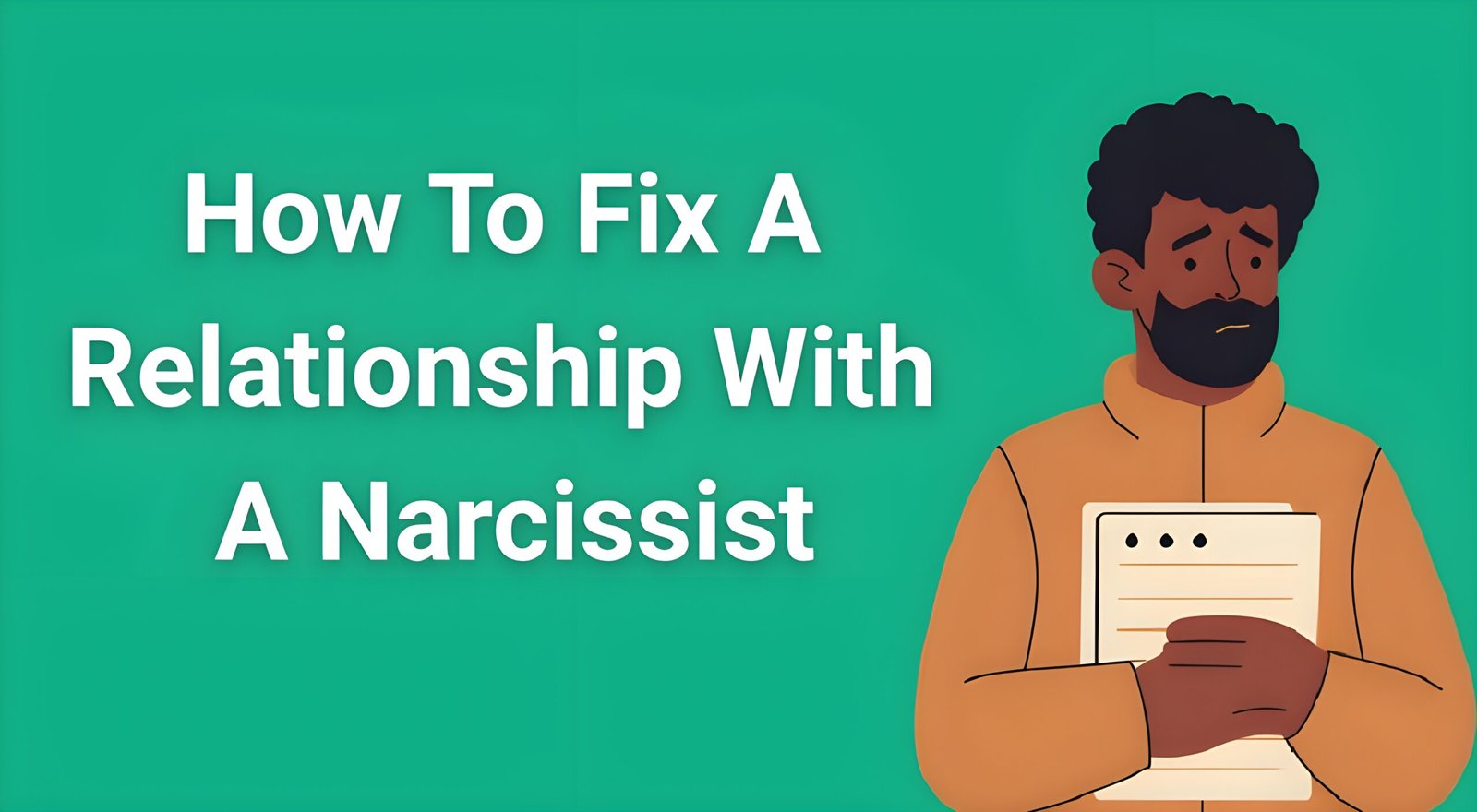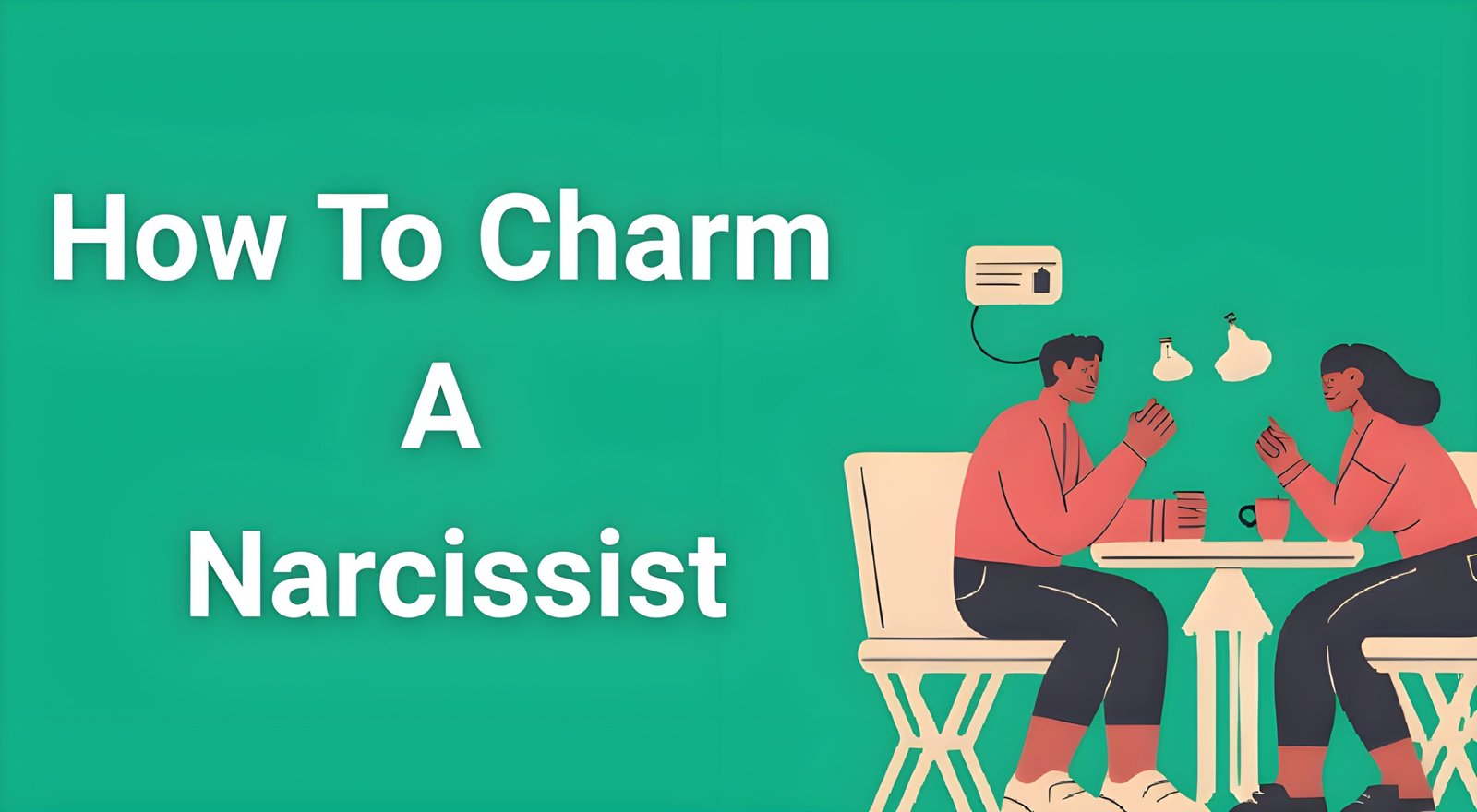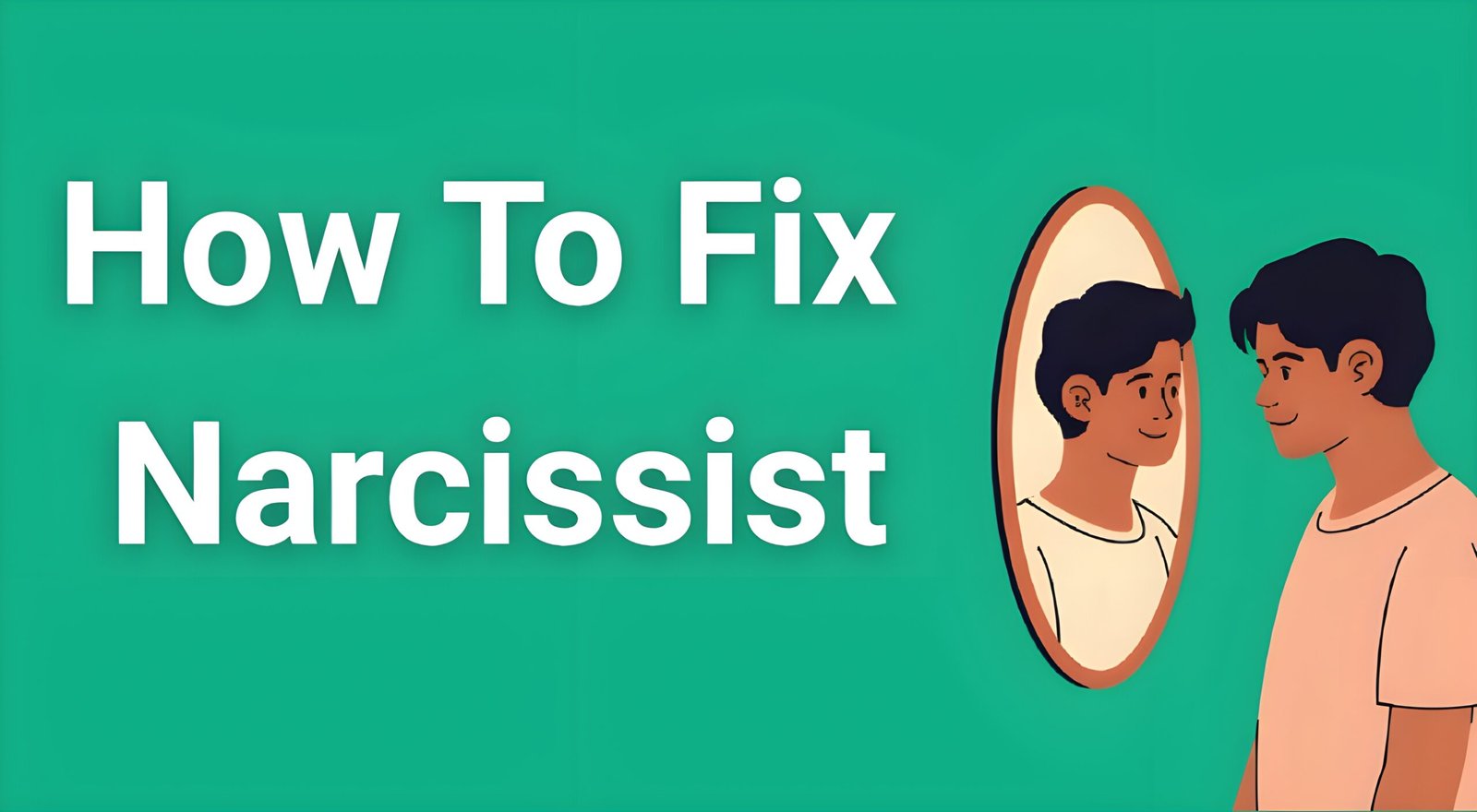If you’re reading this article, you’re likely feeling desperate, confused, and exhausted from trying to make your relationship work. The question “how to fix a relationship with a narcissist” has probably kept you awake at 3 AM, searching for answers that seem to slip away just when you think you’ve found them.
- Understanding What You’re Really Dealing With
- Why Traditional Relationship Advice Doesn’t Work
- The Uncomfortable Truth About “Fixing” These Relationships
- Strategies That Actually Work: Protecting Yourself While Staying
- When Professional Help Becomes Essential
- Signs It’s Time to Consider Leaving
- Creating a Safety Plan
- The Role of Self-Care in Narcissistic Relationships
- Realistic Expectations: What Change Actually Looks Like
- Building Your Support Network
- Moving Forward: Whether You Stay or Go
- Frequently Asked Questions
- Conclusion: Your Path Forward
The truth is both harder and more liberating than you might expect. While there are strategies that can help you navigate a narcissistic relationship more safely, the harsh reality is that you cannot fundamentally change someone with true narcissistic personality disorder (NPD). However, you can change how you respond, protect yourself, and make informed decisions about your future.
Let’s explore what’s really possible when you’re trying to fix a relationship with a narcissist, and more importantly, how to protect your sanity and well-being in the process.
Understanding What You’re Really Dealing With
Before diving into strategies, it’s crucial to understand what narcissistic personality disorder actually entails. NPD affects less than 1% of the population, but narcissistic traits exist on a spectrum. Someone can display narcissistic behaviors without having the full disorder.
True narcissistic personality disorder is characterized by:
- An inflated sense of self-importance
- Deep need for excessive admiration
- Lack of empathy for others
- Exploitative behavior in relationships
- Grandiose fantasies about success, power, or love
- Belief they are special and unique
- Sense of entitlement
- Arrogant behaviors and attitudes
- Preoccupation with envy of others or belief others envy them
The key distinction is that people with NPD have an extremely difficult time recognizing how their behavior affects others or taking genuine responsibility for their actions.
Why Traditional Relationship Advice Doesn’t Work
Most relationship advice assumes both partners are capable of empathy, self-reflection, and genuine change. With narcissistic personality disorder, these assumptions don’t hold true. Traditional approaches like:
- Having heartfelt conversations about feelings
- Couples therapy (can actually make things worse)
- Setting expectations for emotional reciprocity
- Trying to “love them enough” to heal their wounds
These strategies often backfire because they’re based on the premise that your partner can genuinely empathize with your experience and wants to change for the relationship’s benefit.
The Uncomfortable Truth About “Fixing” These Relationships
Here’s what most articles won’t tell you directly: you cannot fix a relationship with someone who has true narcissistic personality disorder. This isn’t about giving up hope or being pessimistic—it’s about understanding the neurological and psychological realities of the condition.
People with NPD typically:
- Cannot sustain genuine empathy
- View relationships as transactions where they should receive more than they give
- Use manipulation tactics (often unconsciously) to maintain control
- Struggle to take authentic responsibility for their actions
- React to criticism or boundaries with rage, withdrawal, or retaliation
However, this doesn’t mean you’re powerless. While you can’t change them, you can change your approach, set firmer boundaries, and protect your emotional well-being.
Strategies That Actually Work: Protecting Yourself While Staying
If leaving isn’t an option right now—whether due to children, finances, or other circumstances—these strategies can help you maintain your sanity and safety:
Establish Unshakeable Boundaries
Boundaries with narcissistic individuals must be concrete and enforced consistently. Vague boundaries like “treat me with respect” won’t work. Instead, try:
- “I will not continue conversations that include yelling or name-calling. If this happens, I will leave the room.”
- “I will not discuss my personal decisions with your family members.”
- “I will not lend money without a written agreement about repayment.”
The key is following through every single time, without exception.
Master the Gray Rock Method
When direct confrontation escalates conflict, the gray rock method can be effective. This involves becoming as uninteresting as possible during interactions:
- Give brief, factual responses
- Show no emotional reaction to provocations
- Avoid sharing personal information or opinions
- Stay calm and boring
This technique works because narcissistic individuals often feed off emotional reactions and drama.
Document Everything
Keep detailed records of incidents, including:
- Dates and times of concerning behaviors
- Screenshots of text messages
- Notes about financial irregularities
- Records of promises made and broken
This documentation serves multiple purposes: it helps you maintain perspective on reality (counteracting gaslighting), provides evidence if needed for legal proceedings, and can be valuable if you eventually seek professional help.
Build and Maintain Outside Support
Narcissistic partners often isolate their victims from friends and family. Actively maintain relationships outside your primary relationship:
- Schedule regular contact with trusted friends
- Join support groups (online or in-person)
- Maintain professional relationships
- Consider working with a therapist who understands narcissistic abuse
When Professional Help Becomes Essential
Navigating a narcissistic relationship alone can be incredibly isolating and confusing. The constant gaslighting, emotional manipulation, and unpredictable behavior patterns can leave you questioning your own reality.
Professional assessment can provide clarity about your specific situation. Many people find that getting an expert analysis of their relationship dynamics helps them understand exactly what they’re dealing with and develop targeted strategies for protection and healing.
A comprehensive evaluation can identify the specific type of narcissistic behavior you’re encountering, assess the level of manipulation occurring, and provide personalized strategies for your unique circumstances.
Breaking Free from Trauma Bonds
One of the most challenging aspects of narcissistic relationships is the trauma bond that develops. This psychological phenomenon creates an addiction-like attachment that makes leaving feel impossible, even when you logically know the relationship is harmful.
Trauma bonds form through intermittent reinforcement—cycles of cruelty followed by affection that create powerful neurological pathways. These bonds are not evidence of “true love” but rather a response to psychological conditioning.
Breaking trauma bonds requires:
- Understanding the neurological basis of your attachment
- Implementing specific daily practices to rewire your brain
- Learning to distinguish between genuine love and traumatic attachment
- Developing alternative coping strategies for anxiety and loneliness
A structured, day-by-day approach to trauma bond recovery can be transformative for people who feel trapped in these patterns.
Signs It’s Time to Consider Leaving
While some people can maintain narcissistic relationships with strong boundaries and support systems, certain red flags indicate the relationship may be too dangerous to continue:
Physical or Sexual Abuse
Any form of physical violence or sexual coercion is unacceptable and dangerous. These behaviors typically escalate over time.
Severe Financial Abuse
This includes hiding assets, preventing you from working, destroying your credit, or stealing money.
Threats of Harm
Threats against you, your children, pets, or your property should be taken seriously.
Complete Isolation
If you’ve lost all outside relationships and support systems, this is a serious warning sign.
Impact on Children
If children are being used as weapons, experiencing abuse, or showing signs of trauma from the household dynamics.
Your Mental Health is Deteriorating
If you’re experiencing depression, anxiety, suicidal thoughts, or losing your sense of identity.
Creating a Safety Plan
Whether you’re planning to stay or leave, having a safety plan is crucial:
Immediate Safety Measures
- Identify safe places you can go in an emergency
- Keep important documents in a secure location
- Have a small amount of emergency money accessible
- Know the contact information for domestic violence hotlines
Long-term Protection Strategies
- Gradually rebuild your support network
- Work on financial independence
- Develop your own interests and identity
- Consider legal consultation if needed
If You Can’t Leave Yet
Many people find themselves unable to leave immediately due to various constraints. If this is your situation, focus on:
- Emotional and psychological survival strategies
- Building internal strength and clarity
- Preparing for eventual independence
- Protecting any children involved
There are specific strategies for surviving in these circumstances while building toward future freedom.
The Role of Self-Care in Narcissistic Relationships
Self-care isn’t selfish when you’re dealing with narcissistic abuse—it’s essential for survival. However, traditional self-care advice may not be sufficient for your situation.
Beyond Bubble Baths: Serious Self-Care
- Maintain your own medical and mental health appointments
- Keep a private journal to maintain your sense of reality
- Practice grounding techniques for anxiety and dissociation
- Maintain some aspect of your identity separate from the relationship
Protecting Your Mental Health
- Learn to recognize gaslighting techniques
- Practice reality testing with trusted friends
- Understand trauma responses like hypervigilance and fawning
- Develop emotional regulation skills
Realistic Expectations: What Change Actually Looks Like
If your partner doesn’t have full NPD but displays narcissistic traits, some improvement may be possible. However, even positive changes typically involve:
Surface-Level Modifications
They might learn to modify behaviors that cause obvious problems, but underlying attitudes often remain unchanged.
Temporary Improvements
Changes are often short-lived and revert during times of stress or when they feel secure that you won’t leave.
Strategic Compliance
They may follow rules or agreements when it serves their interests, not from genuine understanding or care.
Limited Emotional Growth
Expect minimal development in empathy, emotional intelligence, or genuine consideration for your feelings.
Building Your Support Network
Recovery from narcissistic abuse often requires specialized support that understands the unique challenges of these relationships:
Professional Support
- Individual therapy with trauma-informed practitioners
- Support groups for narcissistic abuse survivors
- Legal consultation if needed
- Financial planning assistance
Personal Support
- Reconnecting with old friends and family
- Building new relationships based on mutual respect
- Finding community through shared interests or values
- Online support communities for validation and understanding
Moving Forward: Whether You Stay or Go
Regardless of whether you ultimately stay in or leave your relationship, the goal is the same: reclaiming your power, protecting your well-being, and making conscious choices rather than reactive ones.
If You Stay
- Maintain strong boundaries and enforce them consistently
- Keep your support network active and healthy
- Continue working on your own growth and healing
- Regularly reassess your situation and safety
If You Leave
- Expect the process to be more complicated than typical breakups
- Prepare for potential retaliation or manipulation attempts
- Focus on healing trauma bonds and rebuilding your identity
- Be patient with yourself during the recovery process
Frequently Asked Questions
Q: Can therapy help a narcissist change?
A: Individual therapy can sometimes help people with narcissistic traits develop better coping strategies, but personality disorders are notoriously difficult to treat. Couples therapy is generally not recommended when narcissistic abuse is present, as it can actually provide more ammunition for manipulation.
Q: How long does it take to recover from a narcissistic relationship?
A: Recovery varies greatly depending on the length and severity of the relationship, your support system, and whether you’re still in contact with the narcissistic person. Many people report significant improvement within 6-12 months of implementing recovery strategies, though deeper healing can take years.
Q: Will they change for their next partner? A: While narcissistic individuals may modify their behavior temporarily with new partners (during the “love bombing” phase), the underlying patterns typically remain the same. Each relationship may look different on the surface, but the core dynamics of control and manipulation tend to persist.
Q: Is it possible to co-parent effectively with a narcissist?
A: Co-parenting with a narcissistic ex-partner presents unique challenges but is possible with strict boundaries, documentation, and sometimes legal intervention. The focus should be on protecting the children while minimizing conflict and manipulation opportunities.
Q: How do I know if I’m being too sensitive or if this is really abuse?
A: If you’re constantly questioning your own perceptions, walking on eggshells, or feeling like you can never do anything right, these are signs of emotional abuse regardless of intent. Trust your instincts and seek professional evaluation if you’re unsure.
Conclusion: Your Path Forward
Learning how to fix a relationship with a narcissist begins with understanding that the “fix” may not look like what you originally hoped. True healing often involves accepting that you cannot change another person, but you can change how you respond, protect yourself, and make informed decisions about your future.
The journey from confusion to clarity, from reactive to empowered, is possible. Whether that journey leads to a transformed relationship dynamic or to freedom from a harmful situation, the destination is the same: a life where you’re valued, respected, and free to be your authentic self.
Remember, seeking help isn’t a sign of weakness—it’s a sign of strength and self-respect. You deserve relationships that nourish rather than drain you, and partners who see your worth rather than exploit your vulnerabilities.
The question isn’t whether you can fix a relationship with a narcissist, but whether you’re ready to fix your relationship with yourself and reclaim the life you deserve.






